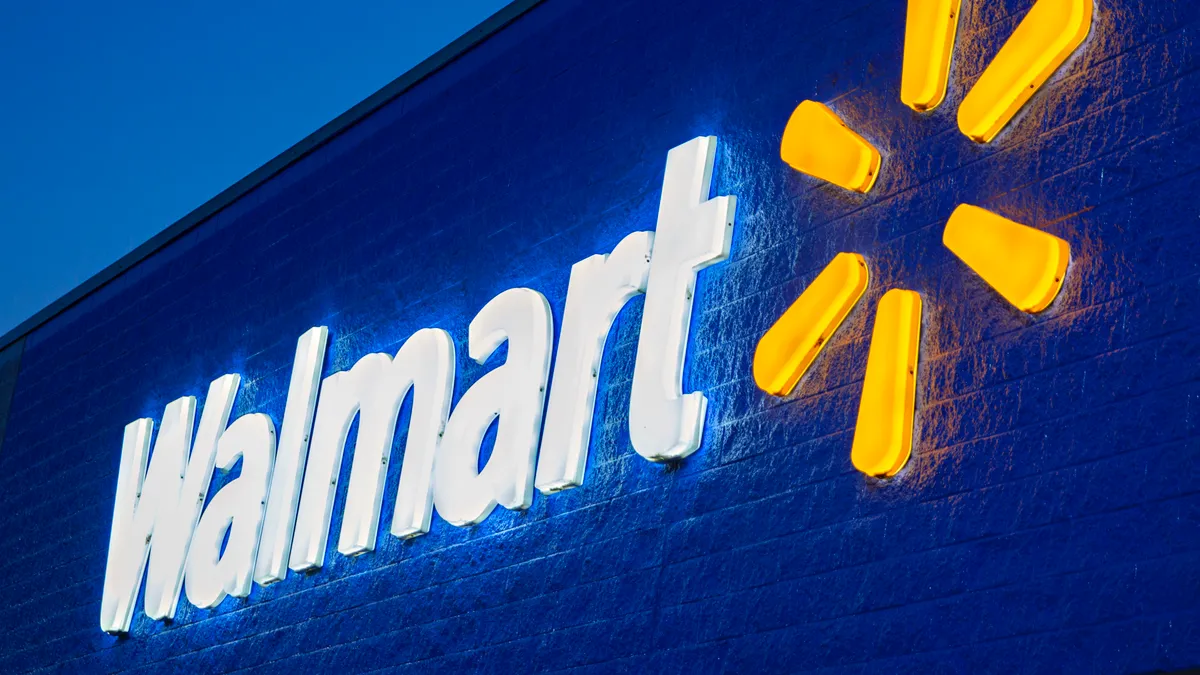Dive Brief:
- Walmart is chartering ships to ensure it has enough freight capacity to meet demand for peak season, executives said on the company's earnings call Tuesday. The decision came amid a lack of capacity in the ocean shipping market.
- The retailer's out-of-stock levels are higher than normal due to high sales levels and supply chain constraints, CFO Brett Biggs said, without outlining what normal levels look like for the retailer. Walmart's suppliers are also adding longer lead times to their orders to help Walmart to better plan its inventory, Biggs said.
- "We've chartered vessels ... we've secured capacity for the third and fourth quarter and feel good about the inventory positioning particularly compared to last year with inventory up 20% across the segments," John Furner, CEO of Walmart U.S., said on the company's earnings call.
Dive Insight:
Some large importers like Walmart have decided that taking matters into their own hands is a better decision than waiting for ocean carriers to have space.
In June, Home Depot told CNBC that it had similarly chartered its own ship in an attempt to avoid issues in the ocean market.
"We're currently in the midst of red-hot freight and charter markets," Global Ship Lease Executive Chairman George Youroukos said earlier this month. Global Ship Lease has signed 40 new charter agreements so far this year, Youroukos said.
The rush to secure capacity has gained steam as cargo owners need to ship products soon if they're going to be on the shelves for the holidays.
"We're also working to ensure product availability during the holiday season," Hasbro CFO Deb Thomas said last month after noting the company had experienced increased freight costs.
Walmart is confident its inventory will be in a good position for the end of year, Furner said. Its inventory for the most recent quarter was up 20% YoY, which the company said reflected the impact COVID-19 had on inventory last year and the need to meet high demand this year, according to slides presented during its earnings call.
The consumer demand has impacted operations at ports. The Port of Los Angeles had its 12th consecutive month of YoY increases in freight volume in July, Executive Director Gene Seroka said Tuesday.
"We're now officially at the start of traditional peak season," Seroka said. "And this year's peak looks a lot like it has over the last 12 months: unrelenting consumer demand, imports competing for space."













